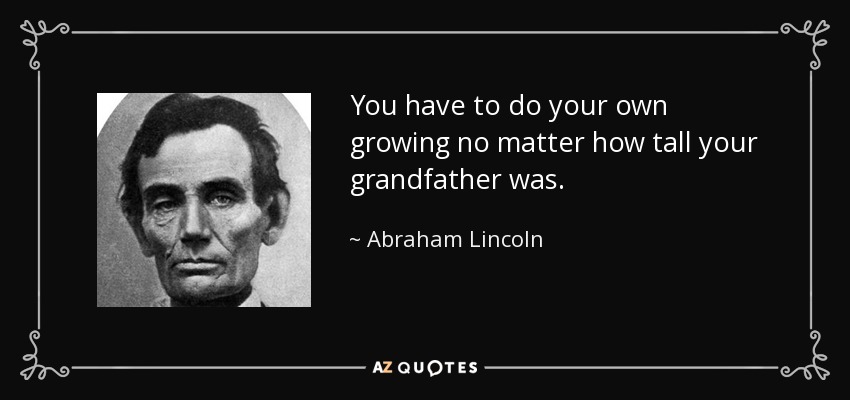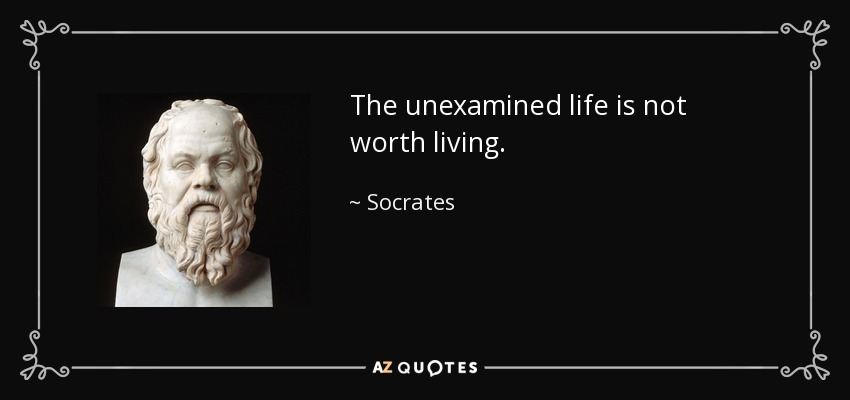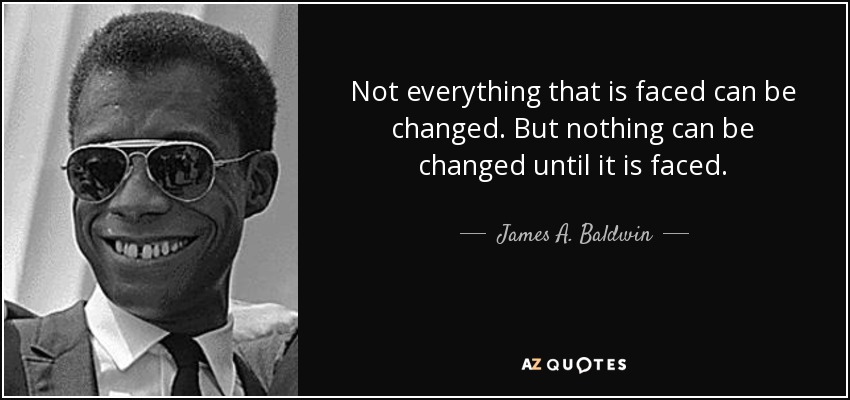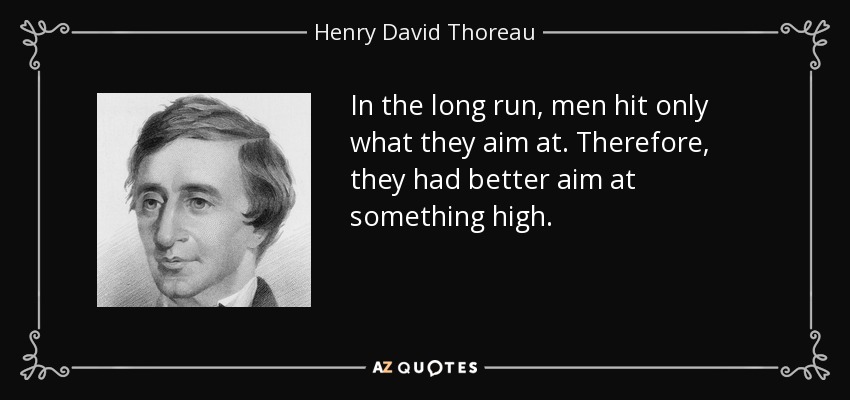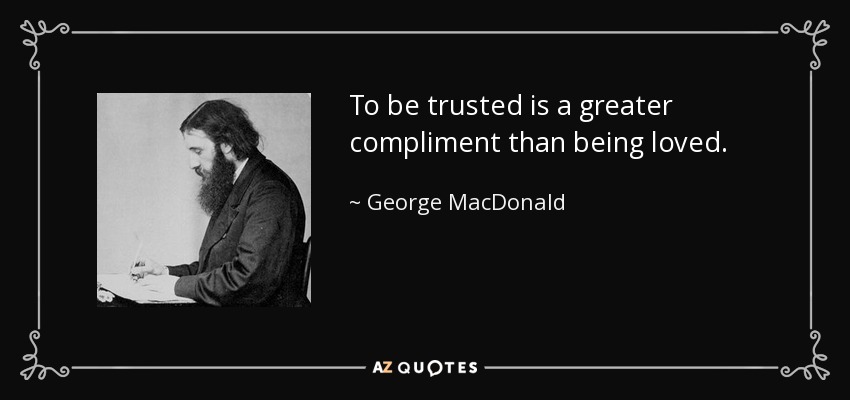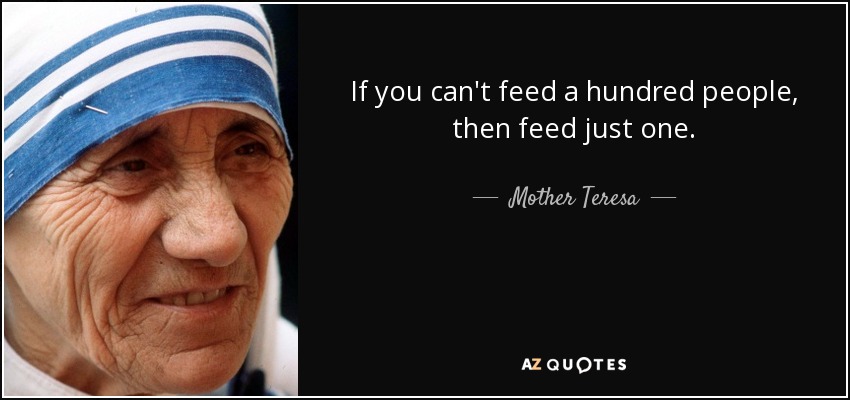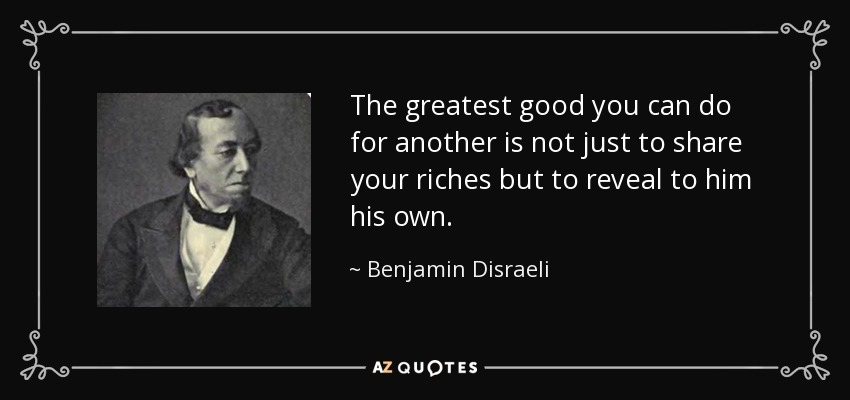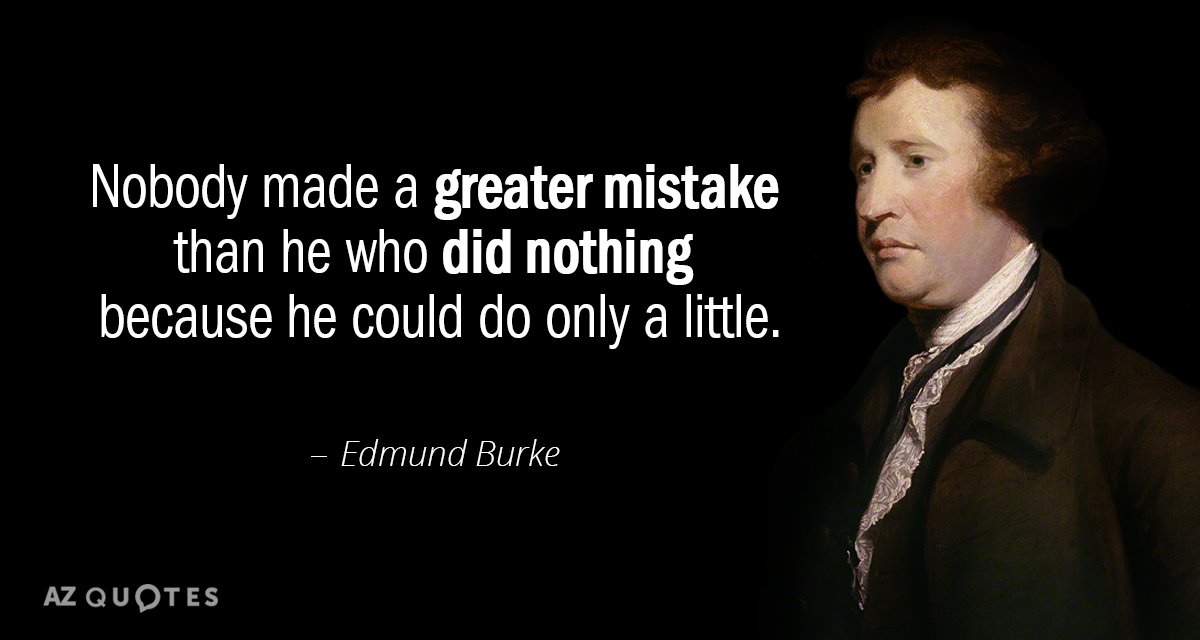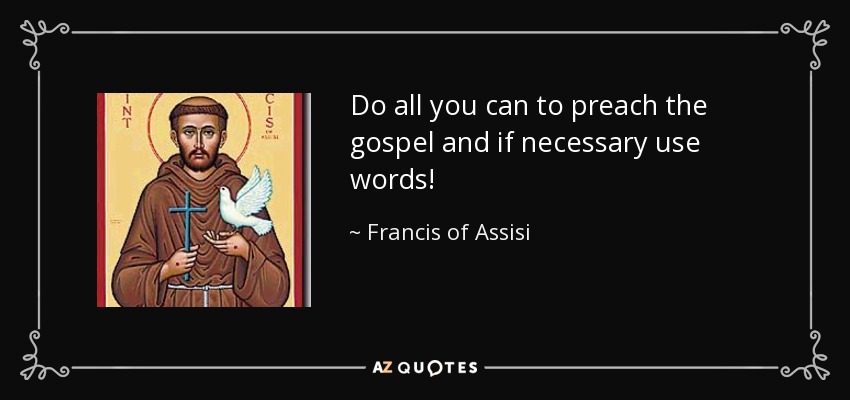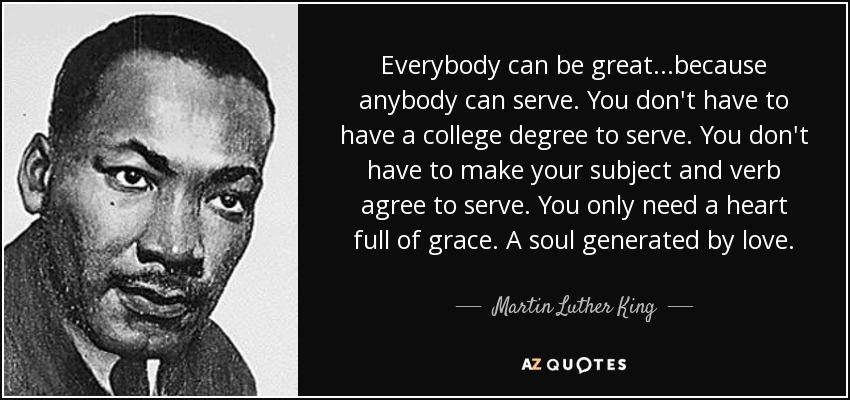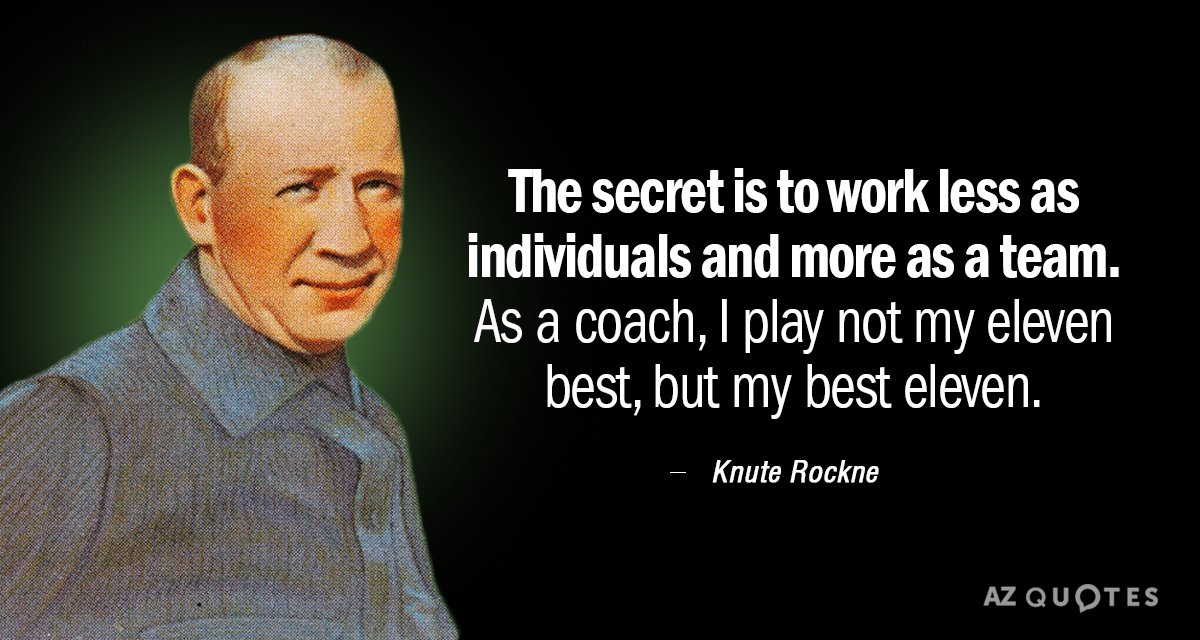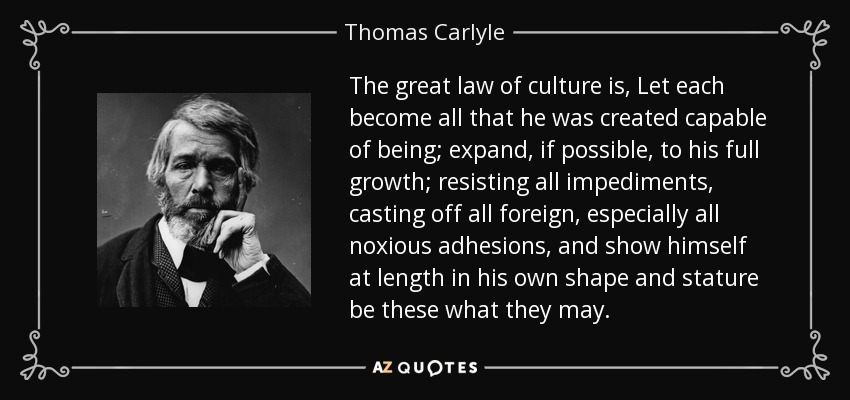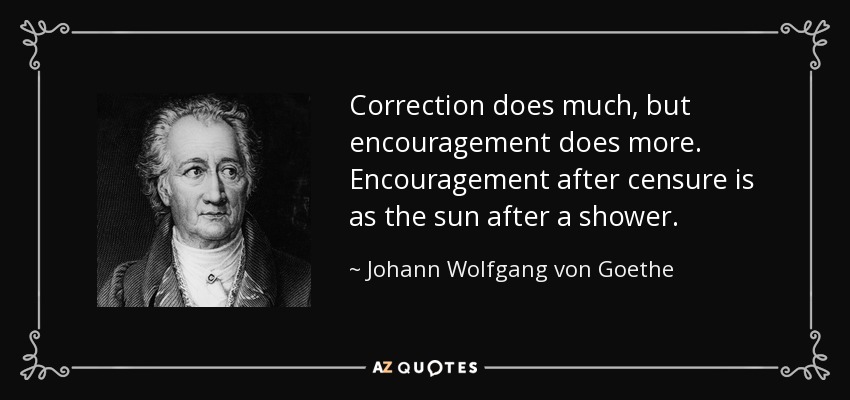Click here to return to Blog Post Intro
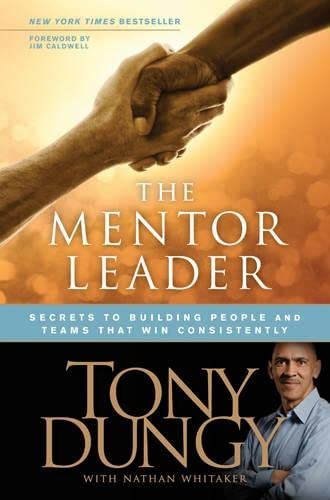
“If all you’re about is winning, it’s not really worth it. I’m after things that last.” – Keli McGregor
Mentoring isn’t just a structured program that makes the difference; rather, the difference is made moment by moment by leaders who care—for others.
Leadership is not an innate, mystical gift; rather, it is a learned ability to influence the attitudes and behaviors of others. As such, we can all learn—and then teach others—how to understand and apply the principles of successful leadership.
Mentor leaders seek to have a direct, intentional, and positive impact on those they lead. At its core, mentoring is about building character into the lives of others, modeling and teaching attitudes and behaviors, and creating a constructive legacy to be passed along to future generations of leaders.
The Mandate of a Mentor Leader: Focus on Significance
A unity of purpose and a desire to make other people better must start at the top if these goals are going to ripple through an entire organization.
Mentor leaders put people first.
Shortsighted leadership focuses primarily on the bottom line.
Leaders whose definitions of success depends on such a short-term—temporal, noneternal—focus will one day wake up to discover they’ve missed out on what is truly important in life, namely, meaningful relationships.
We tell ourselves that “quality time” can make up for a lack of quantity time and that as long as we achieve whatever temporary, worldly goal we’re pursuing, all is well. Just keep climbing. Relationships are ultimately what matter—our relationships with God and with other people.
The question that burns in the heart of the mentor leader is, “What can I do to make other people better, to make them all that God created them to be?”
Simply stated, leadership is influence. We can find opportunities for leadership wherever we go.
Mentor leaders understand that if we lose sight of people, we lose sight of the very purpose of leadership.
Mentor Leaders strive for significance in life.
Sociologist Tony Campolo says that the world has “switched price tags,” giving value to the value-less while undervaluing the truly important.
Mentor leadership focuses on building people up, building significance into their lives, and building leaders for the next generation.
It’s important to remember why you lead is as important as whom you lead. Leading for the benefit of others is a much more compelling and powerful motivation than leading merely to get ahead or to hit an arbitrary target.
Part of our purpose in life is to build a legacy—a consistent pattern of building into the lives of others with wisdom, experience, and loyalty that can then be passed on to succeeding generations. Whether it’s in your business, your school, your community, or your family, if you want to make a difference in the lives of the people you lead, you must be willing to walk alongside them, to lift and encourage them, to share moments of understanding with them, and to spend time with them, not just shout down at them from on high. Mentors build mentors. Leaders build leaders.
Mentor Leaders keep an eternal perspective.
Mentor leaders tend to lean toward longer-term results. They are involved in the present, but are willing to defer immediate gratification in order to build value and structure into people’s lives, creating a culture based on something more than wins and losses.
James Brown in Role of a Lifetime: Reflections on Faith, Family, and Significant Living: “God’s success is ‘good success.’ It’s significance. It’s making a difference in the lives of others.”
Building an organization for “good success” means creating a culture that will live on through succeeding generations. Here are some action steps:
- Evaluate your integrity: are your actions consistent with your words?
- Evaluate your impact: are you making lives better?
- Evaluate your perspective: do you see people as central to the mission of your organization?
- Evaluate your goals: are you building relationships?
Q&A with Tony Dungy
What would you say to the well-meaning father, mother, husband, or wife who believes that financial success will lead to a more secure and happy home?
First of all, those things—career, homes, wealth—can be taken from us in a moment. I’ve seen too many people who had all the material things they could want and were very unhappy with their lives because they found they weren’t fulfilled. One of the best pieces of advice Coach Noll ever gave me was not to make any career decisions based on money. Don’t look at salary or security as the most important thing. Rather, before accepting a job, look at what you will learn from that employer, the type of people you will be around, and how it will help you reach your long-term life goals. You have to trust that God will take care of your family’s needs.
The Mindset of a Mentor Leader: “It’s Not about Me”
Great teams have chemistry, where the players recognize “it’s not about me.” It’s not about you. It’s about others. The single most important factor that differentiates mentor leaders from other leaders in any setting is their outward focus on others.
The mentor leader looks at how he or she can benefit others—which ultimately benefits the individual and the organization.
Through Dungy’s study of Scripture, he found that the mentoring mind-set can be seen in Jesus’ interactions with others. If you think about how He spoke to His disciples, it’s clear that Jesus was committed to making others better, equipping and enabling them to become mentor leaders themselves.
Paul Hersey and Ken Blanchard’s “situational leadership” of the 1970s noted that different styles of leadership—telling, selling, participating, and delegating—are appropriate at different times, depending on the audience (those we lead) and the situation.
The “coaching tree” is the ongoing progression of leaders building leaders who are equipped to build other leaders. This regenerative aspect of mentor leadership is what sets it apart from other leadership paradigms.
Ask yourself, “Am I prepared to have great success and not get any credit for it?”
It’s relatively easy in today’s world to lose sight of the present in view of our goals and ambitions. And it’s relatively easy, as leaders, to become so focused on our destination that we don’t allow ourselves or the members of the organization to enjoy the journey. Enjoy the journey—especially today, because the future you envision may never come.
Vision, Mission, and Values
Vision paints the picture of where we want to be, what we want to look like, what we hope things will be like in the future if we do what we feel we are called to do as a team or an organization. A well-cast vision is one that can be commonly shared by all members of the team.
A mission statement—whether it’s for an organization, institution, family, team, or individual—serves to answer a fundamental question: why do we exist? Patrick Lencioni in his book for families, The Three Big Questions for a Frantic Family, suggests that you simply craft a mission to be the best of your ability, encapsulating the items that make your family or team unique, and then run with it. (See our Family Mission Statement, created in 2013 here.)
Values, very simply, can be thought of as the “rules of the road.” Taken as a whole, our vision, mission, and values tell the world who we are, what is important to us, and what guides our lives.
Truly serving others requires putting ourselves and our desires aside while looking for ways and opportunities to do what is best for others.
Humble servant leadership demonstrates to those you lead that you see them as valuable and flips the world’s model upside-down: leaders who serve—not just when it’s convenient, neat, and acceptable, but when it’s timely, needed, and right.
Intentional, direct service to others—in a word, mentoring—is the key to leadership success on a consistent, long-term basis.
Mentor leaders produce mentor leaders. Mentor leadership uses an inverted organization chart. At any moment, if one of the people below stopped lifting the ones above, the whole chart would crumble and fall.
When everyone else understands that his or her role is to lift, encourage, and equip—and that all members of the organization are dependent on one another—it becomes clear that nurturing relationships is necessary to the organization’s health.
Q&A with Tony Dungy
What makes for an effective mission statement?
Mission statements are very simple. They explain what you are or your organization is all about at the very core.
The Maturity of a Mentor Leader: A Look Within
The ability to take an honest look at yourself and examine who you are—what makes you tick, what makes you do the things you do—is a mark of maturity for a mentor leader.
Forgiveness is not the easiest of godly attributes to embrace. But it might be the best medicine available to help you to get beyond things from the past that hold you down and keep you from achieving your godly potential.
If you carry emotional baggage, the only person it bothers, affects, and holds back is you. Becoming what we are meant to be is a journey worth taking—for all of us.
Priorities are related to each other and to the limited time into which they must be squeezed. Devoting more time to one priority naturally limits the time available for something else. Acknowledging that life requires trade-offs at times and prioritizing the various aspects of our lives into the hours available each day provides us a road map to make decisions when those trade-offs become necessary.
If you start making excuses to cut out the things that are important because of urgent circumstances, it will become a habit, and you’ll start cutting them out regularly. Whether it’s a crisis or not, there always seems to be a reason why this time just isn’t the right time.
Dungy urges, “People hear what I’m saying: your employer deserves your loyalty and whatever time it takes to perform your job. However, that job, that career, has to fit into your life in the appropriate place. It cannot be your life.”
Our employers, whether they realize it or not, need for us to engage in our other priorities because these are the things that recharge and strengthen us. It is ultimately up to each of us to determine the proper balance between our priorities and our passions.
As we assign priorities to all the important elements in our lives, we will begin to demonstrate our true priorities and what is really important to us by what we choose to do first, second, third, and so on.
As Super Bowl-winning Coach Bill Walsh said, “Don’t tell me what a player can’t do. Show me what he can do and we’ll utilize his strengths.”
Denny Green, Dungy’s boss with the Minnesota Vikings, used to say he would not select the fifty-three best players, but the fifty-three players who gave us the best team.
We’ve all seen examples of “dream teams” that looked great on paper but played like a nightmare.
Part of knowing our strengths and understanding our weaknesses is making a commitment to growth. People respect a leader who doesn’t have all the answers as long as they can see that the leader is committed to personal growth.
Here are some actions Mentor Leaders can take:
- Take a look inside: Mentor leaders know who they are, what motivates them, and why they do what they do and react the way they react; and they are always ready to change in order to become all that God intends.
- Evaluate your motives: Are you working for yourself? For God? For others?
- Take a look in the mirror: Recognize that God has given you incredible gifts, abilities, and strengths that are unique to you.
- Complement your strengths with the strengths of others.
Q&A with Tony Dungy
How were you able to strike a healthy balance between your passions and your priorities in your career?
I think God gives us passions, and that is great. We just have to keep those passions in the right spot in our lives. There’s a fine line between passion and addiction, between a dedicated employee and a workaholic. It also helps to have someone—your spouse or a close friend—who is able to tell you honestly how you’re doing.
The Marks of a Mentor Leader: Characteristics that Matter
Dungy has found these facets of leadership particularly useful: trustworthy traits, leadership attributes, and relational qualities.
As critically important as a shared vision for leadership is in an organization, character is even more fundamental and essential.
General Matthew Ridgway, the great American general who led the United Nations forces in the Korean War, rated character as one of three core leadership skills, along with courage and competence.
Research conducted by the Leadership Research Institute has shown that in times of crisis, people gravitate toward the person of highest character, not necessarily the person who is “in charge” or even the person they believe to be the most competent. People will tend to build a relationship with and follow the person they view as the most trustworthy, who cares the most, and who is willing to always do the right thing. In a crisis, people crave character.
Here are four primary trustworthy traits: competence, integrity, security, and authenticity.
We don’t need to have all the answers, but the people we lead must be confident that we have the competence to lead them in pursuit of the organization’s vision and mission.
Secure leaders are free to lift others up who will eventually replace them.
We can all be effective with our own styles. Whatever gifts God has given us, we should make use of them. Be real. Be authentic. Be sincere. People will know when you’re not. And they will know when you are—and be drawn to that.
Leadership attributes that are intrinsic to mentor leadership include:
- demonstrating courage;
- leading by example;
- keeping others focused on the organization’s vision and mission;
- exercising and modeling faith; and
- always being willing to examine and change paradigms.
We are drawn to leaders who are right there in the trenches with us and who are willing not only to stand with us, but also to stand against others on our behalf—leaders who are not above the fray, watching from a distance.
Sometimes as a leader, you simply have to act as if the things you believe in will occur. You have to implement positive steps as if the hoped-for result will in fact become reality—you have to put action behind your words.
Dungy reflected, “Once, in Tampa, I allowed others to influence my decision to fire our offensive coordinator, even though I knew the coordinator was doing exactly what I wanted, exactly what we had agreed he should be doing. I convinced myself at the time that I was saving other jobs by sacrificing one. I also believed I should give deference to those in authority over me. But that decision is still my single greatest leadership regret. If I had to do it over again, I would stand my ground and do what I truly believed was the right thing.”
Dungy has found—over a lifetime of coaching and speaking with other leaders in sports and business—that the best leaders are those who are engaged with the people around them.
Being available—available to teach, available to interact, available to care—also means being involved. But by allowing others to approach you, and by being open to and sincerely welcoming interaction in your leadership role, you’ll have the opportunity to relate to people on a much more meaningful basis.
Part of being approachable is staying available emotionally. Jim Zorn, the former head coach of the Washington Redskins and long-time quarterback for the Seattle Seahawks, is part of a weekly Bible study conducted over the telephone with Dungy and a number of other coaches. He said that he picked up a phrase during his career that helped him when the pressure was on: “Act medium.”
Over time, Zorn learned to put things behind him emotionally—both good and bad—and to stay focused on future performance. Thus, to “act medium” came to mean staying available emotionally—neither too high nor too low, avoiding either extreme.
Loyalty develops depth in a relationship, which then forges the bonds to hold the relationship firm and fast when storms and challenges come.
Leader, if you have too many direct reports, evaluate your attitudes about delegation, empowerment, and trust then determine how you can begin to build strength into the people you lead.
Q&A with Tony Dungy
Should character be a factor when reviewing performance? How can that be accomplished?
There’s no question that character has to be considered. How you accomplish your goals is more important in the long run than merely getting to the top by any means possible.
How has understanding the importance of being available and approachable strengthened your mentoring relationships?
For me, I have to constantly take inventory of my time, because I want to make sure I’m available for my children and not neglect their need to have me as the leader of the household.
The Moments of a Mentor Leader: Influence and Impact
Pay attention to the people around you and the opportunities in front of you, knowing that your chances to make a positive difference will come along in due time. If you pursue mentor leadership, God will ultimately use you for His good. Focus on the impact you can have with the platform God gives you.
Don’t worry about your platform; focus on your impact. Dungy explained, “I’ve learned that I have to be intentional. I need to be intentional about being a mentor, recognizing my platforms and taking advantage of the opportunities I have to impact people around me.”
You can’t lead in a vacuum; leadership is all about relationships. And never underestimate your platform—especially the one right in front of you.
Coach Landry seemed stoic and placid, emotionally immovable on the sidelines, and incredibly calm in his demeanor. His teams, of course, were very good, but you never saw or heard a lot of that attributed to Coach Landry. The Cowboys were called America’s Team, but Dungy said that he never heard anyone refer to Coach Landry as America’s Coach. That’s probably just the way he wanted it.
It was surprising how Coach Landry kept such a low profile in a town that loved its superstars. But he succeeded in keeping the focus on the players rather than on himself. Tom Landry ultimately became one of Dungy’s heroes in coaching—a true role model, who proved it was possible to live your life according to Christian principles and yet still be ultrasuccessful.
Regardless of our situations in life, we are always role models for someone—always—and probably in ways we wouldn’t expect.
In this day and age, when so many of our country’s children are growing up without a father in the home, Dungy appreciated the example that President Obama has become of fatherhood. Some people are surprised to hear him say that, because they don’t agree with all the president’s policies.
Dungy explained, “Well, I don’t agree with all his policies either. But to me, the images of the president with his wife and daughters, of having his mother-in-law living with them in the White House, convey that even though he’s the president of the United States, his family is important to him. And I believe this is an important example to set, especially for African American children.”
Dungy recalled that sometimes his assistants would tell him that their friends in the league asked whether they really worked as few hours as rumored or if that was just another urban legend. He went on to say, “It’s not that we didn’t work plenty of hours, they were able to assure their friends; we just tried to be smart about it and not spend time at the office just for the sake of spending time at the office so that someone would think we were doing a good job. We all know the amount of time spent is not necessarily an indicator of success.”
Two of the greatest influences in our lives will be the people we associate with and the books or other media we read or watch. So, choose wisely.
Dungy noted that most people did not have an accurate perception of Chuck Noll. Because he was quiet, and because the Steel Curtain was in a blue-collar town, people did not expect him to have an intentional, calm teaching approach. He was the consummate teacher, and he did all this with an intentional, direct style—leading but always willing to walk beside me as a mentor leader.
Regardless of your style—deliberate or spontaneous—or your formal position within your organization, begin taking steps today to build into the lives of the people around you. It will improve your organization in the short term and over the long haul. And it might even have eternal significance.
Take these actions. Name three mentors you have had. Stop and think about who they were, what their impact was in your life, and why they mentored you. How would your life be different if they had not taken the time to build into your life by mentoring you? Have you thanked them?
Q&A with Tony Dungy
Amid the busyness of your personal and family life, do you ever find it difficult to focus on having an impact on others? How do you handle it?
Yes, it’s easy to get busy and caught up in your own schedule and personal needs. I try to read the Bible every day, and that helps me to stay on course and look for opportunities to help others. The Bible always reminds me of why God put us here—to be leaders of our families, to help others, and to point people to Christ.
The Model of a Mentor Leader: Living the Message
You will be known by your words—and your actions. You will be known by what you model for others—through your words, your actions, your faith, and your heart.
Consider the James 2:14-18 excerpt: “What good it is, dear brothers and sisters, if you say you have faith but don’t show it by your actions? So you see, faith by itself isn’t enough. Unless it produces good deeds, it is dead and useless.”
Especially in tough times, people will want to know if your actions measure up with your words and faith. Leading through your words and actions—whether someone’s watching you or not—tells the world who you are, and more important, who you believe God created you to be.
Dungy’s father took him to see a basketball game with Coach Greene of River Rouge High School in Detroit (who won 739 games, teaching commitment and passion…and a little about basketball). After the game, his dad asked him what he thought. Dungy confessed, “I wasn’t very impressed with Coach Greene. He didn’t do anything. He just sat there calmly with his arms folded. No expression. I didn’t really see him do any coaching.”
Dungy’s father offered him one of his typical cryptic, Confucion one-liners: “When you’re a teacher, you talk when you teach. You don’t talk during the test.” He continued, “If you teach well enough, you really don’t have to worry when the students are taking the test—they are prepared and can take care of themselves.”
If you’re called to do something—committed to following through on your words—then sometimes, that is bigger than what we want to do. God may call us out of our comfort zones to benefit someone else.
In times of crisis, people follow those with character. Not competence or authority, but character. It would be nice to have all three, of course, but if you have to choose which quality to build on, make sure you have impeccable character.
Consider your legacy. You can tell the world who you are, but the you they hear and see in action will be the you they remember. What kind of legacy are your building?
The Means of a Mentor Leader: Maximizing Team Performance
Great organizations aren’t great places to work simply by chance—they are intentionally created. An organization that values employees will work to understand and appreciate the differences among people. Diversity is not something we should merely accept as a legal mandate. Rather, we should recognize that our diverse backgrounds and life experiences enhance the synergy of a high-performing team.
When a leader creates an appropriately healthy, stimulating, and nurturing culture and is dedicated to mentoring people, valuing them, and giving them the tools to succeed, the organization’s vision and mission are not only achievable but also sustainable.
From James M. Strock’s Theodore Roosevelt on Leadership: Nearly a century ago, Theodore Roosevelt said, “We need leaders of inspired idealism, leaders to whom are granted great visions, who dream greatly and strive to make their dreams come true; who can kindle the people with the fire from their own burning souls.”
Why does GE’s culture foster the development of leadership? The company continues to develop new leaders, even as talent leaves. With all those up-and-coming leaders scattered throughout the company, it can’t help but increase results within the company. GE’s very intentional focus on leadership development has also attracted more potential leaders to GE than the company otherwise might have had. Once it gained a reputation for developing leaders, it had to have become a magnet for bright young people looking to maximize their leadership potential.
Mentor leaders are always looking to add the right pieces, the right skill sets, and the right mix of diversity to the organization. Differences among the team will enhance its drive for success, if handled properly within the context of the culture, vision, mission, and values of the organization.
To be effective mentor leaders, we must do what Jesus taught us to do: We must reach beyond the boundaries that separate us and connect with people who are different from us.
We might glean any number of principles from the lessons Jesus taught His disciples, but here are three in particular that apply to our roles as mentor leaders:
- Truly value others, which is at the heart of Jesus’ command to “love your neighbor as yourself” (Matthew 22:39; Mark 12:31)
- Don’t see yourself as above service, as Jesus told James, John, and the other disciples: “Whoever wants to be a leader among you must be your servant” (Mark 10:43).
- See yourself as an ambassador for God, doing something for the simple reason that it’s the right thing to do. “We are Christ’s ambassadors; God is making his appeal through us. We speak for Christ when we plead, ‘Come back to God!’” (2 Corinthians 5:20).
Together—Always Moving Forward
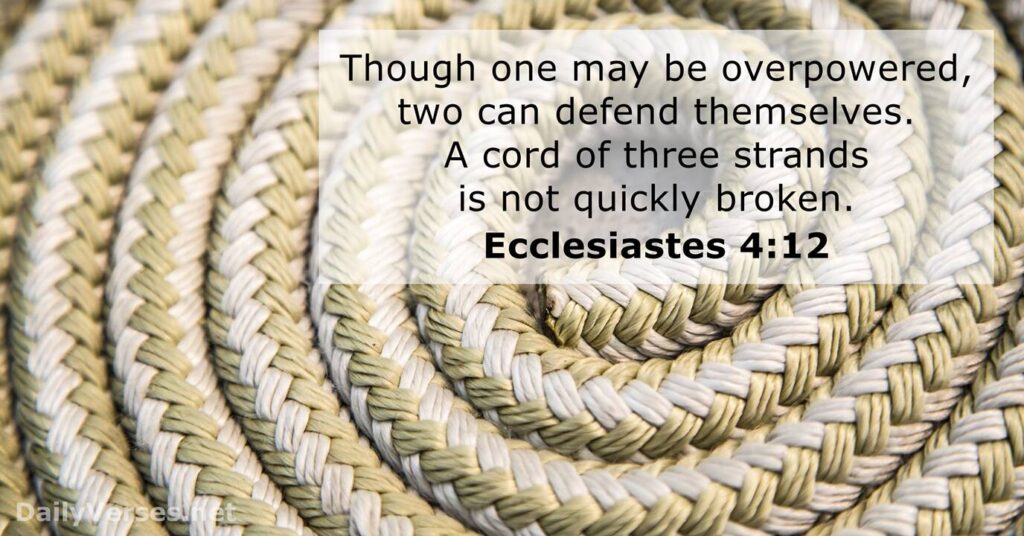
As Solomon put it in Ecclesiastes, a person standing alone can be attacked and defeated, but two can stand back-to-back and conquer. Three are even better, for a triple-braided cord is not easily broken.
Coach Noll used to say, “We need every man on this roster to win, but no player is so important that we can’t win without him.” Over the years, Dungy found that “important but not indispensable” is a much healthier and less pressurized way to view himself.
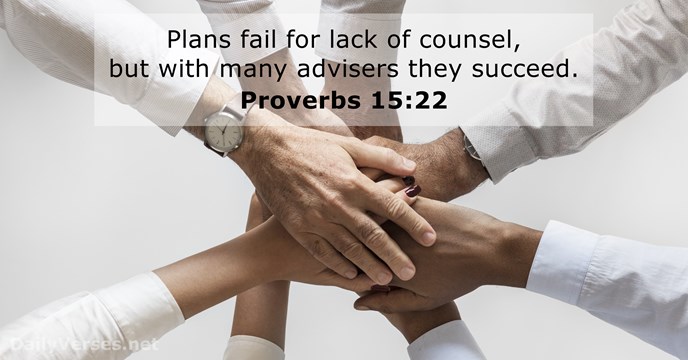
If someone offers constructive inputs, you would be arrogant not to at least consider it. Ordinary effort and processes will lead to ordinary results if people are working only as individuals. To achieve extraordinary results, you need a team of people doing ordinary things in a way that complements one another’s efforts. Working together is what leads to exceptional results.
If you are trying to get the people you lead to go above and beyond their simple job descriptions, you must make sure that they understand the ultimate organizational goal—your vision and mission—and believe in its importance until it becomes shared by all.
Viewing members of your organization as volunteers—and really, they aren’t far from it, given how transient the workforce is these days—forces you to see them in a different light. You’ll begin to lead in ways that demonstrate respect and appreciation. Focus on persuasion instead of position and authority.
Mentor leaders are prepared to allow others to receive the credit, for the betterment of the entire organization. To succeed as a mentor leader, put other people first. Others first, for maximum team performance.
Here are four actions Mentor Leaders should take:
- Get the culture right. The culture of the organization is the first thing other people see. It determines the direction of your organization and the way decisions are made. Get the culture right, and the rest won’t necessarily be easy, but it will be easier.
- Get everyone on the same page. How can you make your leadership more inclusive?
- Strengthen your organization by embracing diversity. What can you do to build on the differences within your team?
- Break down barriers. Confident, secure leaders cross boundaries that otherwise separate society. What can you do to break down barriers inside and outside your organization?
Q&A with Tony Dungy
Do you believe mentors need their own mentors in order to stay accountable and to make sure their actions match their words?
Yes, it’s important for all of us to have other people who are helping us grow, looking out for us, and keeping us focused.
How would you counsel an athlete who wonders, “Does my behavior off the field reflect Christian values?” What does that mean when you’re in the heat of the battle?
We have to practice staying under control in high-pressure situations. Many people comment on my calm demeanor during games, but I wasn’t always like that. It’s something I worked on and improved because I felt that was an important part of my Christian witness.
The Methods of a Mentor Leader: The Seven E’s of Enhancing Potential
Here are seven key words that describe a progression of steps that will help you mentor others. Engage with those you are blessed to lead. Once you’ve engaged with them, you are able to educate and equip. Throughout the process, it is essential to encourage, empower, and energize in order to finally elevate the people around you.
(1) Engage
Someone once said, “Teamwork doesn’t tolerate the inconvenience of distance.”
It is critical for mentor leaders to engage with those they lead. It’s impossible to mentor from a distance. One of the ways Dungy tried to build communication and foster engagement was to keep an open-door policy. A true open-door policy is a matter of attitude and approachability, not just whether the office door is propped open.
As time passes and people learn that your door is truly open, they will take advantage of your invitation to come in. A simple open door equals an opportunity for engagement.
Engagement is a key factor in the management style known as “management by walking around,” pioneered years ago by the founders of Hewlett-Packard and popularized by Tom Peters and Bob Waterman in their 1982 best-selling book In Search of Excellence.
(2) Educate
Dungy’s father Wilbur Dungy—a teacher—often said, “Good teachers help every student earn an A.”
Because mentor leadership is all about helping others become the best they can be, it is built on a foundation of teaching, helping, and guiding. Our goal should be to help everyone earn an A—or whatever the equivalent measure of success is in our organizations. (Note: this is similar to Ken Blanchard’s teaching philosophy, which he described in his book Helping People Win at Work, which is summarized here.)
(3) Equip
Pittsburgh Steelers Coach Chuck Noll—Dungy’s coach when he played—said, “Our job as a coaching staff is to show you what to do and how to do it. Your job as players is to do it consistently.”
Mentor leaders create an environment in which others can be productive and excel. They set the parameters and guidelines for the task, project and continually recast the vision, and then provide the tools and equipment needed for everyone to be successful in their assignment and to ultimately accomplish their mission.
Equipping is an ongoing process for a mentor leader. As various tools are mastered, we can keep honing them and looking to add more.
(4) Encourage
Encouragement is the fuel that powers our efforts to engage, educate, and equip. Nothing does more to lubricate the rough spots that a good dose of encouragement.
As a mentor leader, you’re probably better off overusing encouragement than underusing it.
(5) Empower
Once the people you lead are ready, it’s time to turn them loose. But not before they’re ready. As a mentor leader, you have a responsibility to engage, educate, equip, and encourage them first—and at every appropriate point thereafter, as well. You can’t just walk in and empower them. If they’re not ready, you’re only setting them up to fail.
True empowerment: preparation followed by appropriate freedom.
(6) Energize
Great leaders energize and inspire those they lead.
Energize. Inspire. Motivate. The mentor leader does this—intentionally.
(7) Elevate
Teamwork: Simply stated, it is less me and more we.
The ultimate goal of every mentor leader is to build other leaders.
At the heart of this regeneration is the principle of elevation—raising people up. As a mentor leader, the success of the people you’ve elevated is what you’d like to see. It’s not about getting the credit; it’s about helping the organization, and everyone in it, be the best they can be.
If leaders are focused on multiplying their efforts and growing other leaders for long-term, sustainable success, they will succeed in building organizations that are full of leaders—and eventually replace themselves.
Engage, educate, equip, encourage, empower, energize, and elevate. Those are the methods for maximizing the potential of any individual, team, organization, or institution for ultimate success and significance. Those are the methods of a mentor leader.
Develop your team members as leaders. The mentor leader’s ultimate goal is to build leaders who will leave and lead elsewhere, or who will be elevated to fill the mentor leader’s role.
The Measure of a Mentor Leader: Building Other Lives of Impact
Very simply, the mentor leader adds value to the lives of others, to make the lives of other people better.
Power, control, and fame can all be enticing. But releasing those around us to other leaders who might serve them better is one of the things we have to evaluate.
Albert Schweitzer describes living a life of significance, “The only ones among you who will be really happy are those who will have sought and found how to serve.”
Consider these action steps:
- Always be willing to find the right place for someone to serve, knowing that God has uniquely equipped every person with incredible gifts and abilities.
- Prepare yourself to hand off your leadership to someone else who is ready to be elevated.
- It’s not about us; it’s about everything that God can do through us, for others.
The best coaches are the ones who keep their core values in place but continue to adapt and improve—and that means listening to constructive criticism.
May Tony Dungy’s tips for becoming a “Mentor Leader” serve you well, as you shoot for the stars!

